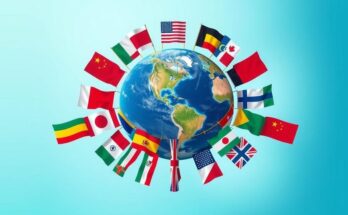North Korea reopened to Western group tourists after five years but rapidly suspended this activity within three weeks. Travel agencies reported receiving notifications of the closure, impacting current travelers. Concerns over the long-term viability of North Korean tourism remain, particularly given the regime’s cautious approach to external influences.
North Korea recently reopened its borders to Western group tourists for the first time in five years; however, it has now temporarily shut down tourism activities merely three weeks later. According to reports by AFP, Korea Tour, a British-owned agency based in Beijing, stated that they received information regarding the temporary closure of tourism in Rason. The agency expressed its intention to provide updates as more information becomes available.
Travelers currently in North Korea will continue their planned itineraries, confirmed Simon Corkorell, head of Koryo Tour. Additionally, Young Pioneer Tour, established by a New Zealander in Beijing, along with KTG Tour from Spain, noted their notification of the suspension but lack information on its duration.
Initially, in January 2020, North Korea sealed its borders due to the COVID-19 pandemic. It was not until September 2023 that foreigners were allowed entry, primarily from Russia. The recent lifting of restrictions enabled limited groups from Western countries, including tourists from France, Germany, and Britain, to visit Rason, where positive reviews were published through media outlets by travel agencies.
Koryo Tour had plans to attract amateur tourists for the upcoming 31st Pyongyang International Marathon on March 6. The tour package was priced at 2,195 euros, excluding additional fees for visa processing and race registration. This event was expected to signal a more significant reopening of tourism in Pyongyang, but the unexpected closure has left the North Korean tourism sector in a precarious position.
NK News reported on expert opinions indicating uncertainty regarding the recovery of North Korean tourism to pre-pandemic levels, attributing this to the regime’s reluctance to expose its citizens to external influences that could disrupt their ideological stability.
In summary, North Korea’s recent attempt to revive its tourism sector has been abruptly interrupted by a temporary shutdown, creating confusion among travel agencies and tourists. The reopening had shown promise with limited Western group tours resuming; however, this unexpected halt raises doubts about the future of the tourism industry and its capacity to regain its previous status. Experts remain skeptical of the North’s willingness to fully reintegrate into international tourism due to ongoing concerns over ideological control.
Original Source: www.mk.co.kr




